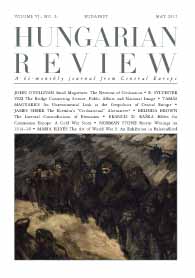Recent Writings on 1914–18
Recent Writings on 1914–18
Author(s): Norman StoneSubject(s): History
Published by: BL Nonprofit Kft
Summary/Abstract: In London, at the beginning of each November, people wear a red poppy in their lapel, and nowadays this has to be explained to foreigners. On the part of France where the British fought in the First World War, the area between the two front lines was studded with poppies, and these became the symbol of the war. On the anniversary of the armistice that ended the fighting, 11 November, there is a ceremony in London, to remember the dead of all modern British wars, but the First World War remains the great catastrophe: a million dead, as against the 250,000 of the Second World War. But 1914 marks more than that. Up until that date, there had been a long peace, and the Pax Britannica stood for a world of stable progress. The British could imagine themselves heir to Rome, and though their empire did not really last for long, it has indeed left behind a language and a legal system that spread throughout the world. Especially in the troubles of the 1930s, people looked back on 1914 as if through a golden glow – the king on his throne, the empire at peace, passportless travel with a bag of gold sovereigns, and “sleek reviews financed by coolie labour”, as Orwell called them.
Journal: Hungarian Review
- Issue Year: VI/2015
- Issue No: 03
- Page Range: 95-100
- Page Count: 6
- Language: English

